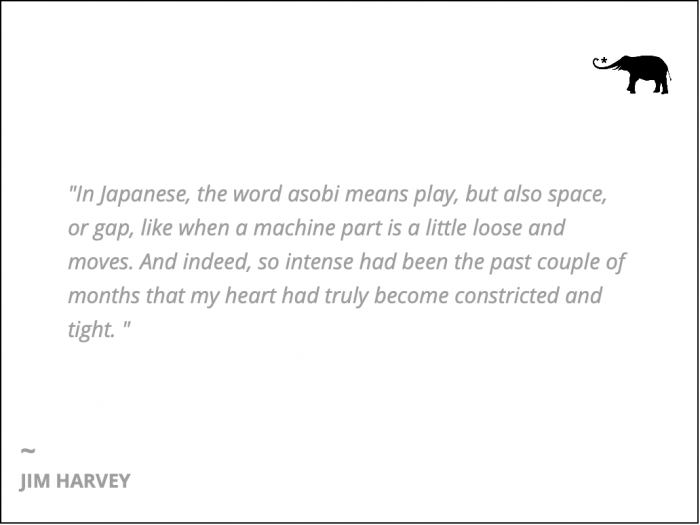Not long ago, as I was sorting through some old belongings, I came across a Japanese shakuhachi, or bamboo flute.
Memories came flooding back of the Japanese monk, S. whose Buddhist name translates loosely as, “He who is comfortable in emptiness” and who had begun to teach me the instrument.
I felt a surge of gratitude for everything I had learned from him. There is much I have tried to apply in my life, not least since the pandemic began with its restrictions and climate of fear. S. told me, “It is the space in the flute that creates the sound—without it, there would be no music.”
He paused and smiled, his Japanese eyes narrowing, then added, “If the flute were solid, there could be no tune—do you understand?”
“Er, yes, I think so…” I answered.
When I first met S., I was a foreign student in Japan, and a man on a mission. Having been introduced to Zen Buddhism in my late teens, I was determined to find a master in the country, and bent upon achieving fluency in the language as quickly as possible. Hoping to live in complete immersion among the Japanese, I had asked for “homestay” accommodation.
Fate placed me in the family of S., who was the abbot of a Buddhist temple belonging to the Pure Land school. He was tall for a Japanese man, with a broad smile and white teeth, and of course a perfectly shaved head. He wore round, wire-rimmed spectacles, and, when at home, loose, navy blue cotton work clothes. His other profession was that of musician—S. was a shakuhachi player of some repute.
And so began my year as a foreign student. In the mornings I would rise early, and attend the daily ritual of worship, the chanting of the name of the Buddha Amitabha, who reigns over the Pure Land. “Namu Amida Butsu, Namu Amida Butsu.”
S. would intone, in his full, low voice, while kneeling at the altar and beating time with a hollow wooden bell. After this, I would catch a train, and then another, to Nagoya, and spend the rest of my day at university and on my return, do homework. I was driven, almost obsessive, with my studies—aware that I had only 10 months at my disposal. I did not want to waste a single moment in idle leisure.
One evening, a few weeks into my stay, S. called me from my room and my books. Beckoning me to sit at his low table, he proceeded to pour me a shot of shochu—a rough potato liquor about 25 degrees in strength—to which he added a dash of hot water and an umeboshi, or pickled plum. Then, he picked up his brush, and carried on writing name tags in preparation for a temple ceremony.
My drink was mildly sour from the plum, and sweet from the liquor, and the alcohol rapidly hit my blood stream. By and by, S. looked up from his writing, and reached for a sheet of rice paper. He dipped his brush in his ink.
“Jim,” he began, “tonight I want to copy a haiku for you.”
He took the blank sheet, and placed it between us.
“Now,” he said, “where would you begin to write?”
Perhaps, because Japanese is written from top to bottom and right to left, or perhaps because my mind was still full of grammar notes, I pointed to the top right-hand corner.
S. sighed. “You have a whole new sheet of paper,” he said, “and you want to start right up there?”
Sliding the rice paper toward him and steadying it with his fingers, he raised his brush and, with a flourish, wrote the haiku with a few deft strokes. The result looked perfectly balanced, beautifully just off-centre.
“There is no play in your heart, Jim,” S. said kindly. “You must soften.”
In Japanese, the word asobi means play, but also space, or gap, like when a machine part is a little loose and moves. And indeed, so intense had been the past couple of months that my heart had truly become constricted and tight. The warmth of his words, combined with my drink, seemed to suddenly dissolve all the tension and fatigue I had accumulated from my self-imposed study regime, and I felt close to tears.
Emboldened by this moment of sharing, I asked S. about his Buddhist practice. It seemed odd that this intelligent, sensitive man I had come to know a little, should pray to a Buddha for entry into some pure land of light.
S. pushed the ink stone and brush away, and looked at me earnestly.
“The Pure Land is a symbol, Jim,” he began. “It exists within us, and nowhere else. It is the space of emptiness, from which all things arise.”
“So, do you chant Amitabha’s name to find this space within?’
S. grinned, as though amused at my slowness in grasping his explanation. “Jim, Amitabha is also symbolic. He is the Buddha nature within us. We invoke his name to awaken our inner Buddha, who dwells in the emptiness. Or rather, is one with it.”
I retired with much to ponder, yet filled with a sense of peace and release.
Some weeks later, in no small part thanks to the prescribed softening, I decided to try and learn the shakuhachi. S. was happy to teach me, and we began to set aside a time each week to practice. But I went about it with the same discipline and almost grim determination I had applied to Japanese. This state of affairs did not escape S. who one day put down his flute, paused, and said to me, “It is the space in the flute that creates the sound—without it, there would be no music. If the flute were solid, there could be no tune—do you understand?”
“Er, yes, I think so…” I answered. But S. was not convinced, and patiently continued.
“The human heart is the same. When there is space in the heart, the soul can sing. But when the heart is tight, the song is suffocated. Now do you understand?”
And in that moment, suddenly, I did. And once again, I felt moved almost to tears.
I never did make much progress with the shakuhachi. But I have never forgotten S. I do not know what has become of him, nor even if he is still alive. But he lives on with me in spirit. And so I end this post with these words: Namu Amida Butsu.
~


 Share on bsky
Share on bsky





Read 4 comments and reply